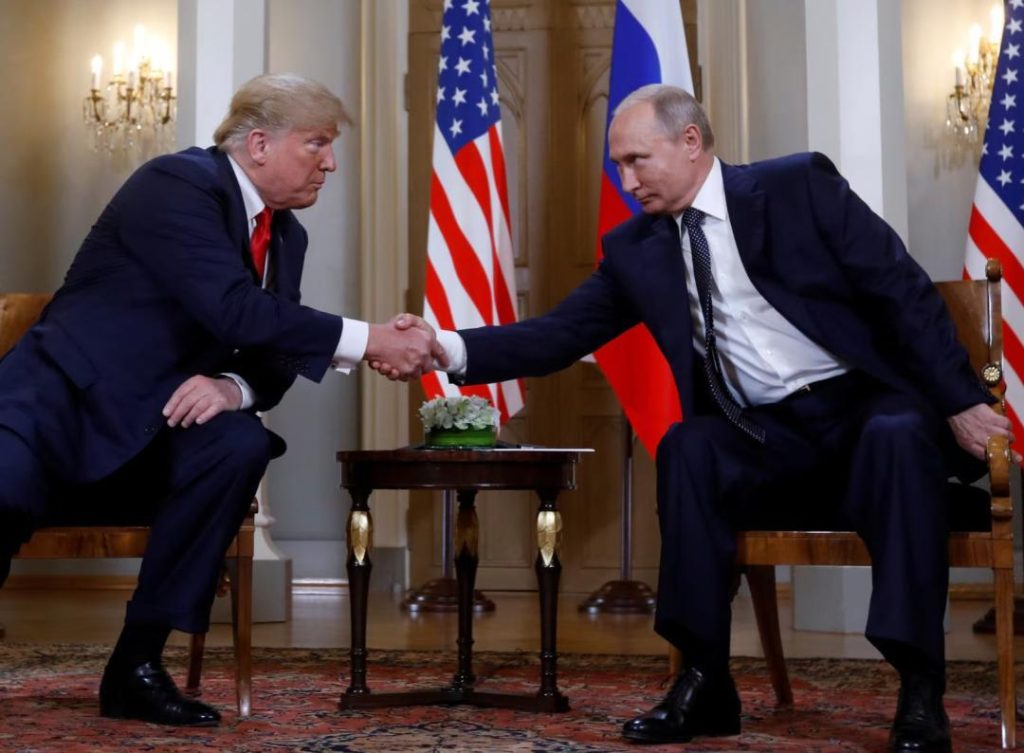
Putin Agrees to ‘NATO-Like’ Security Protection for Ukraine for the 1st Time: US Envoy
In a significant development, Russian President Vladimir Putin has reportedly agreed to allow the United States and its European allies to offer “Article 5-like protection” to Ukraine, according to a special US envoy. This marks the first time Russia has agreed to such a guarantee, which could have far-reaching implications for the ongoing conflict in Eastern Ukraine and the broader global security landscape.
Steve Witkoff, the US special envoy for negotiations with the Russian government, made the announcement in an interview with a media outlet, claiming that Putin made the commitment during a meeting with US President Donald Trump. According to Witkoff, the agreement would provide a robust security guarantee to Ukraine, similar to the one offered to member states under Article 5 of the NATO Charter.
Article 5 states that an armed attack on one member of the alliance will be considered an attack on all, and each member must come to the defense of the attacked party. The provision has been a cornerstone of NATO’s collective defense doctrine since the alliance’s inception in 1949.
The news has sent shockwaves through the international community, with many experts and analysts trying to make sense of the implications of such a commitment. While the details of the agreement are still unclear, the announcement could potentially mark a significant shift in the dynamics of the conflict in Eastern Ukraine, where Russia has long been accused of supporting separatist rebels.
The conflict in Eastern Ukraine began in 2014, following the annexation of Crimea by Russia. Since then, the region has seen regular outbreaks of violence, with both government forces and separatist rebels accused of human rights abuses and war crimes. The international community has repeatedly called for a peaceful resolution to the conflict, but efforts to negotiate a lasting ceasefire have so far been unsuccessful.
The US and its European allies have long been critical of Russia’s actions in Ukraine, and have imposed economic sanctions in response. However, the announcement of Article 5-like protection for Ukraine could potentially mark a turning point in the conflict, as it would provide a significant deterrent to any future Russian aggression.
Witkoff’s announcement comes at a time of heightened tensions between the US and Russia, with relations between the two countries at their lowest point in decades. The Trump administration has been critical of Russia’s actions in Ukraine, and has imposed sanctions on Russian individuals and entities accused of interfering in the 2016 US presidential election.
Despite the challenges, the US and Russia have been engaged in talks aimed at reducing tensions and finding common ground. The announcement of Article 5-like protection for Ukraine could potentially be seen as a breakthrough in these talks, as it would demonstrate a willingness by Russia to engage with the international community and address its concerns.
However, the agreement is not without its challenges. For one, it would require significant changes to Russia’s military doctrine and strategy, as it would necessitate a shift away from its current approach of supporting separatist rebels in Eastern Ukraine.
Additionally, the agreement would also require the approval of Ukraine’s government, which has been hesitant to commit to any agreement that might compromise its sovereignty. The government in Kiev has long been wary of getting too close to NATO, fearing that it would lead to a surge in Russian aggression.
Finally, the agreement would also require the approval of other NATO member states, which has not been a guarantee in the past. While many NATO members have been critical of Russia’s actions in Ukraine, there are also concerns about the potential risks and costs of becoming involved in a conflict with Russia.
In conclusion, the announcement of Article 5-like protection for Ukraine is a significant development that could potentially mark a turning point in the conflict in Eastern Ukraine. While the details of the agreement are still unclear, it has the potential to provide a robust security guarantee to Ukraine and deter any future Russian aggression.
However, the agreement is not without its challenges, and it will require significant negotiations and compromises from all parties involved. Nevertheless, the news is a welcome development, and it could potentially mark a step towards resolving the conflict in Eastern Ukraine and improving relations between the US and Russia.
Source:



